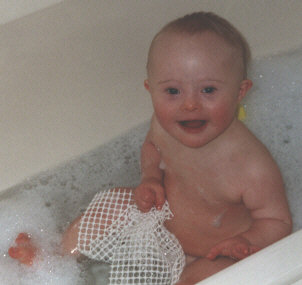Down Syndrome Treatments For Children

Down syndrome treatments for children vary from one to the other, depending on the severity of the condition and the child’s level of ability. In general, doctors recommend early diagnosis and treatment for children with Down syndrome. Special developmental milestones may require extra attention in school, as well as regular medical visits. But how do doctors decide what down syndrome treatments are best for your child? What do the experts recommend? Here are some options. Let’s start with a simple overview of Down syndrome treatment.
Some Down syndrome treatments will help your child cope with its symptoms. Most children with Down syndrome have mild to moderate cognitive impairment. Their language development is delayed, and their short-term and long-term memory may be affected. Down syndrome is usually diagnosed before birth, so it is best to consult your child’s doctor if you are worried about any of these issues. Chromosomes are the building blocks of human cells, which means that one set of chromosomes comes from each parent and the other one is inherited from both parents.
Down syndrome treatments for children vary from case to case. Some of the most common types of therapy are aimed at improving independence. These therapies include learning to pick up objects, turn knobs and push buttons, and even self-feed. Some children with Down syndrome may need surgery to correct upper neck abnormalities. Depending on their level of ability, many people with Down syndrome can benefit from physical therapy. Some people with Down syndrome may also need special education to help them get a job or attend school.
Occupational therapy is one of the most common Down syndrome treatments for children. Occupational therapists help children learn to be more independent. During these sessions, they may teach children how to pick up objects, turn knobs and push buttons, dress themselves, and more. Ultimately, the goal of this multifaceted approach to Down syndrome treatments is to help your child make the transition from being raised by their parents to living on their own. Some people may even move into a group home or share a home with other individuals with Down syndrome.

Surgery is another treatment option for children with Down syndrome. Although many treatments for this disorder are preventative, most patients require surgery to correct heart defects. In more severe cases, surgical procedures may be required. Depending on the severity of the heart defect, the pediatric cardiologist may perform an echocardiogram on the child. If an ultrasound reveals signs of heart defects, a pediatric cardiologist can diagnose and treat the condition. Other treatments for Down syndrome include speech therapy, occupational therapy, social work, and physical therapy.
There are no specific treatments for Down syndrome, but there are important ones methods for treating complications of Down syndrome. A child with this condition should be checked regularly for heart defects or other problems, including hearing and vision problems. They may also need glasses or hearing aids to help them learn. And a child with Down syndrome may need surgery for a blockage in the gastrointestinal tract. In addition to medications, doctors will recommend a heart monitoring device.
Behavioral and occupational therapy are other treatments for Down syndrome in children with heart defects. They involve a combination of medications and interventions aimed at improving the child’s physical well-being and mental development. Most of these treatments are provided through government programs for children with Down syndrome. They can help them socialize, go out and play with others. They can also help people cope with stress and other problems that affect their daily life. During childhood, a child with Down syndrome can attend school with some assistance, such as attending a special school or participating in sports.
Treatment for heart defects depends on the severity of the heart problem. Mild heart disease does not require treatment. In more severe cases, surgery and interventional procedures may be required. Some treatments for Down syndrome are aimed at improving the child’s motor skills. Some of these treatments are more specialized for children with Down syndrome. However, these treatments are important for children with Down syndrome. The website Kopertis 4 states that most treatments for these disorders are aimed at changing children’s daily activities and providing them with the skills necessary to lead normal and productive lives.